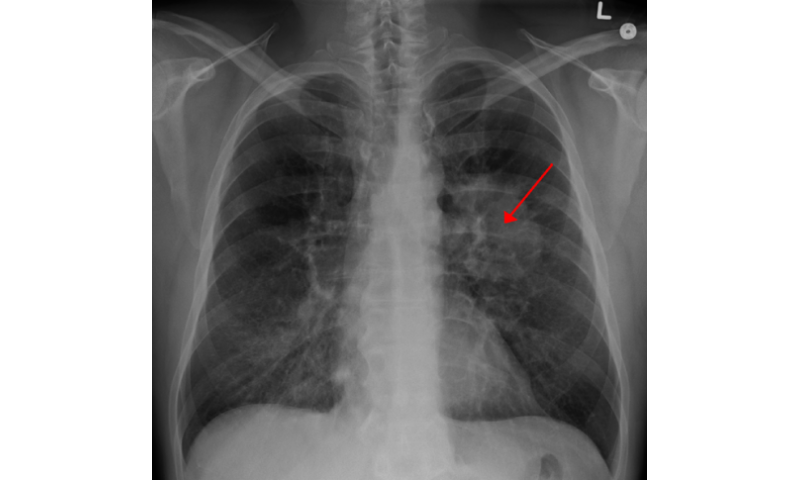Study highlights need for genetic testing for Kentucky patients with lung cancer

A study led by researchers at the University of Kentucky Markey Cancer Center highlighted differences in patient diagnosis and treatment in those with non-small cell lung cancer (NSCLC) across the state of Kentucky.
Recently published in PLOS One, the study used Kentucky Cancer Registry patient data from 2007-2011 to identify trends in epidermal growth factor receptor (EGFR) mutation testing and the usage of the EGFR inhibitor, erlotinib.
EGFR mutations are common in NSCLC. Studies cited in the article highlight the efficacy of using EGFR inhibitors, such as erlotinib, in improving patient outcomes. The relationship between identifying a specific mutation a patient with cancer has and a specialized drug to directly target the mutation to improve patient outcomes is called precision medicine.
The Markey researchers observed that only a small percentage of patients presenting with NSCLC are receiving EGFR mutation testing. The team noted an increase in EGFR testing 0.1% to 10.6% from 2007 to 2011, while erlotinib use ranged from 3.4% to 5.4% during the same time period.
The team also observed an association between EGFR mutation testing and residence, with individuals living in a rural area being less likely to receive the testing. With Kentucky continuing to lead the nation in both the number of deaths due to lung cancer and the rate of new cases, the team behind the study hopes to draw attention to the use of genetic mutation testing and precision medicine to improve patient outcomes and quality of life.
Source: Read Full Article
